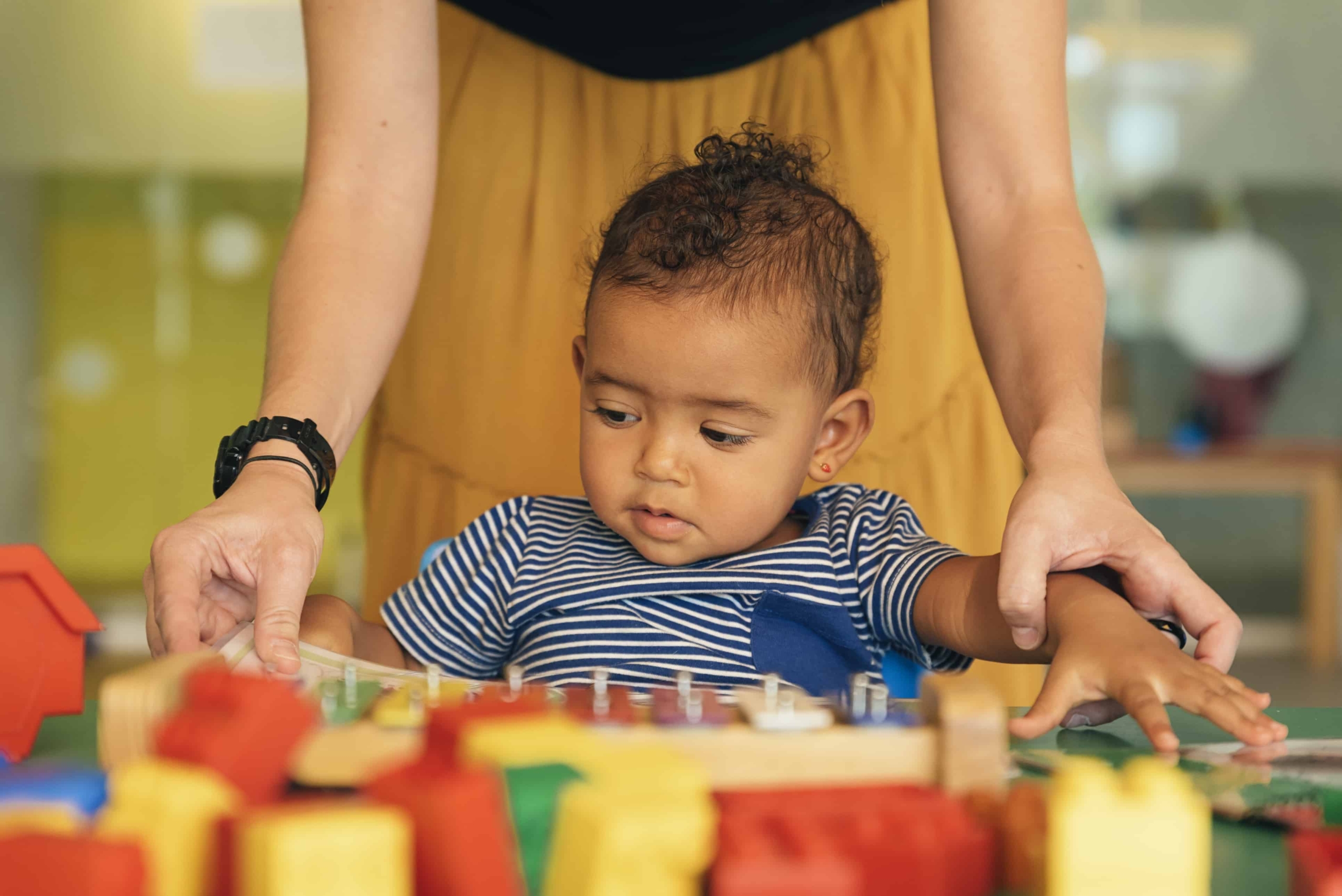Funding to improve early detection of developmental delay

A new model of care which will help facilitate earlier detection and intervention for children with developmental delay has been awarded $1.96 million from the Medical Research Future Fund (MRFF).
Professor Valsamma Eapen, of the Early Life Determinants of Health Clinical Academic Group, and her team, will implement and evaluate the novel tiered transdisciplinary care system known as Children responsive, equitable and sustainable health pathway (CRESH-P).
“Every nine minutes, an Australian child is born at risk of developmental challenges (e.g., speech delay, autism) and our previous research shows that the greatest obstacle to early identification is an ‘inverse care law’, whereby children from the most disadvantaged (cultural, linguistic, geographic, and economic) backgrounds, who have the greatest developmental risk, are the ones least engaging with services. They actually tend not to use services until it is too late,” Professor Eapen explained.
“Access to timely support is hindered by the complex, poorly co-ordinated, and inefficient nature of the Australian child and family service system with fragmentation, duplication, and service delivery gaps. Such inequity in access to early identification and support has been further exacerbated by the COVID-19 pandemic due to service disruption”.
Professor Eapen said her transdisciplinary team will co-design a tiered model of care (CRESH-P), which will bridge the current fragmented and siloed service delivery by integrating the different health service elements with social care at the consumer, service provider and health systems level. Through targeted and integrated supports commensurate with needs, CRESH-P will help overcome the current resource limitations, inflexible eligibility criteria, poor linkages, and transitions.
“CRESH-P will be a game changer by utilising opportunistic contacts to engage and empower parents and to achieve equitable reach and coverage of early identification of developmental delay for all children regardless of parental capacity and family circumstances,” she added.
The project will be conducted in collaboration with members of the Early Life Determinants of Health Clinical Academic Group and the Consumer and Community Involvement and Knowledge Translation platform of SPHERE with investigators from University of New South Wales, South Western Sydney Local Health District, First Steps Count Incorporated, Joondalup Health Campus, Western Sydney University, and University of Western Australia.
Additional partner funding for the project was contributed by Ingham Institute for Applied Medical Research, Karitane Mothercraft Society, Australian Research Alliance for Children and Youth (ARACY), Mission Australia, and Sydney Local Health District.
Chief Investigators: Prof Valsamma Eapen, Assoc Prof Susan Woolfenden, Prof Desiree Silva, Dr Amy Finlay-Jones, Prof Virginia Schmied, Assoc Prof Ann Dadich, Prof Raghu Lingam, Assoc Prof Jane Kohlhoff, Dr Daniel Lin, Prof Ilan Katz, Assoc Prof Kenny Lawson, Prof Andrew Page, Assoc Prof Jenny Downs, Assoc Prof Shanti Raman, and Dr Adam Walker.
Associate Investigators: Ms Penny Dakin, Ms Ainslie Cahill AM, Assoc Prof Rebekah Grace, Dr Grainne O’Loughlin, Assoc Prof Paul Chay, Prof Susan Prescott, Dr James John, Ms Sharlene Vlahos, Ms Wendy Geddes, and Ms Sara Cibralic.
Partner Investigators: Ms Clare Brennan, Ms Bree Katsamangos, and Dr Rebecca Goodhue.
The study is supported by a 2021 MRFF Chronic Neurological Conditions Grant Opportunity (2017709) from the Australian National Health and Medical Research Council (NHMRC).